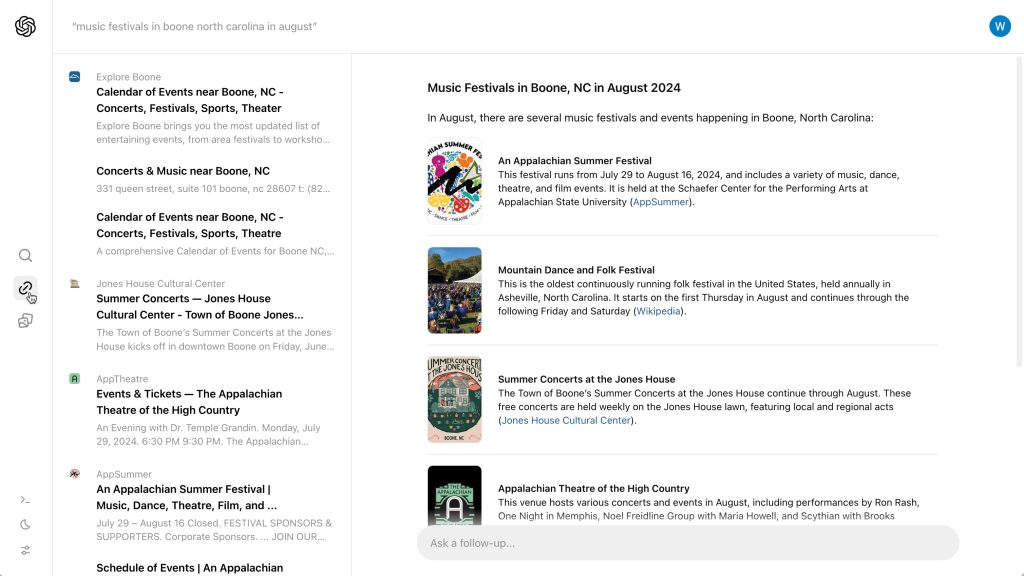OpenAI has unveiled SearchGPT, its eagerly awaited AI-powered search engine, which offers real-time access to information across the internet. The platform draws on the company’s technology to offer what could be a more fluid and intuitive way to search the internet and understand the results.

SearchGPT begins with a large textbox prompting users with “What are you looking for?” Instead of returning a simple list of links, it organizes and contextualizes the information. In an example demonstrated in the tool’s launch announcement, when queried about music festivals, the search engine summarizes its findings and presents short event descriptions with attribution links. In another example, SearchGPT details the best time to plant tomatoes, breaking down different varieties. Users can ask follow-up questions or click the sidebar to explore additional relevant links. There’s also a “visual answers” feature, though OpenAI has yet to provide details on its functionality.
This prototype service, powered by the GPT-4 models, will initially be accessible to 10,000 test users, as confirmed by OpenAI spokesperson Kayla Wood to The Verge. Wood mentioned that OpenAI is collaborating with third-party partners and using direct content feeds to compile its search results. The long-term goal is to integrate these features into ChatGPT.
This development could pose a significant challenge to Google, which is rapidly incorporating AI features into its search engine. OpenAI’s move also puts it in direct competition with the startup Perplexity, known for its AI “answer” engine but criticized for allegedly copying publishers’ content.
The “visual answers” feature in SearchGPT includes an AI-generated video from OpenAI’s Sora via YouTube, alongside images of penguins and stock screenshots. OpenAI highlighted its collaboration with news partners, including The Wall Street Journal, The Associated Press, and Vox Media, in a blog post. “News partners gave valuable feedback, and we continue to seek their input,” Wood said.
Publishers will have control over their content’s appearance in OpenAI search features. They can opt out of having their content used to train OpenAI’s models while still appearing in search results. “SearchGPT is designed to help users connect with publishers by prominently citing and linking to them in searches,” OpenAI stated. “Responses have clear, in-line, named attribution and links so users know where information is coming from and can quickly engage with more results in a sidebar with source links.”
Releasing SearchGPT as a prototype allows OpenAI to address potential inaccuracies or attributions, similar to issues seen with other AI-driven features. Reports about this project have circulated for months, with significant details emerging in February and May.
OpenAI has gradually enhanced ChatGPT’s connectivity to the real-time web. When GPT-3.5 was released, it was already outdated. In September, OpenAI introduced “Browse with Bing” for ChatGPT, which is less advanced than SearchGPT.
Despite attracting millions of users, the rapid advancements by OpenAI have led to significant costs. The Information reported that OpenAI’s AI training and inference expenses could reach $7 billion this year. SearchGPT will be free during its initial launch, but with no current ads, OpenAI will need to determine a monetization strategy soon.







